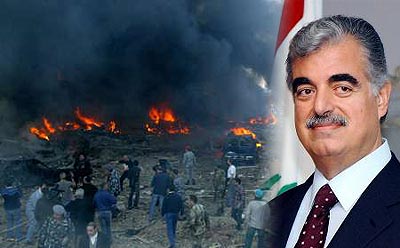The Hezbollah man who killed former Lebanese Prime Minister Rafic Hariri will be sentenced on 11 December, Agence France Presse (AFP) reported.

Prosecutors are calling for Salim Jamil Ayyash, 57, to face life imprisonment when sentenced next week.
Ayyash was convicted in absentia for the 2005 assassination of Hariri by the Netherlands-based Special Tribunal for Lebanon on 18 August.
None of the four defendants, including Ayyash, turned up for the trial after Hezbollah leader Hassan Nasrallah refused to hand them over to the international court, AFP reported.
Ayyash’s three co-defendants, Hussein Hassab Oneissi, Assad Hassan Sabra and Hasan Habib Merhi, were acquitted on all charges in the indictment because the evidence against them was considered “insufficient”.
The 57-year-old, however, was found guilty on five charges, including the premeditated homicide of the Sunni billionaire politician and 21 other persons by using explosive materials.
The judges, however, said the DNA evidence showed the blast that killed Rafic Hariri was carried out by a male suicide bomber who was never identified.
Hariri served as Lebanon’s prime minister twice and resigned in October 2004, months before his death, in protest over the Syrian influence in Lebanese politics.
Hariri was killed on 14 February 2005 when 1,800 kilogrammes of TNT explosive hidden in a Mitsubishi van was detonated next to his motorcade.
The blast left 22 dead, including several of Hariri’s bodyguards and then-Minister for the Economy Bassel Fleihan.
Relatives of the victims, including Hariri’s son and now Lebanon’s designated Prime Minister , and a representative of Fleihan’s family, heard the verdict from the court in the Hague.
The trial and investigation, which has been held under Lebanon’s criminal laws and run by both Lebanese and international judges, has been 15 years in the making and cost approximately $1 billion.
Saad Hariri said his family had accepted the verdict hours after hearing the lengthy judgement.
The verdict was due to be announced on 7 August but was delayed out of respect for the victims of the 4 August Beirut blast.
Lebanon’s capital was devastated when nearly 3,000 tonnes of ammonium nitrate ignited and exploded in the port, leaving over 200 dead and thousands more injured.
MEMO

Leave a Reply
You must be logged in to post a comment.